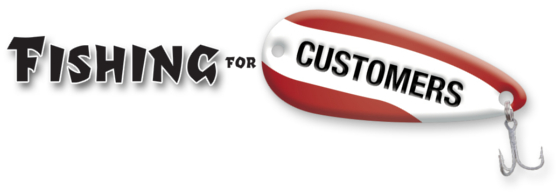 Cash flow is tied to profit and loss, but makes allowances for lags which happen between the sale, and payment clearing your checking account.
Cash flow is tied to profit and loss, but makes allowances for lags which happen between the sale, and payment clearing your checking account.
The problem of a slow economy can work to your advantage if your suppliers grant you credit.
It can be fatal if you offer credit to your customers.
For the next few months its going to be critical that you have an accurate forecast of your company’s cash flows, and keep tight control over all of your customers.
Those folks who owe you.
Have you checked your customer’s credit history, recently? You should. All of them, including those who have (so far) paid on time.
Those with questionable payment history can be expected to delay their payments again during a cash crunch. Be prepared to cut back on their credit lines, and keep a close eye on potential defaults.
As soon as you detect a problem, get them on the phone. It’s much harder to ignore a phone call than a collection letter. Besides, your diplomacy will be even more appreciated in a one-to-one conversation.
Ask for a specific day that you’ll receive payment, and telephone your client again if payment is not received when they promised. Most will pay to avoid another call from you, and another explanation.
Speed up the process.
You can help your financially healthy customers to want to pay faster by offering a 1 to 2 percent discount for payment within two weeks. Perhaps you could go as much as 4 percent for those who pay in cash at time of purchase.
Include your invoices with each shipment of goods, if possible. If not, be sure to send them on the same day.
The Internet has become another powerful cash management tool. You can speed the billing process by e-mailing your statements and invoices (not to mention that you’ll save on printing and postage).
Accepting credit cards on-line or over the phone can also speed the process and reduce costs.
Collecting.
You’re probably already computerized, but have you explored the credit controls and debtor reports that are usually built into accounting software? Get familiar with these tools, and use them.
It’s as bad to dun customers who have paid on time as it is to ignore those who haven’t paid and are past due. Whomever on your staff handles collections will need real-time data to keep customers from taking advantage of potential inefficiencies in your operation.
Do what you can to preserve customer relationships, but recognize that there’s no benefit in maintaining a relationship with someone who can’t, or won’t, pay. And even your best customers may themselves have genuine cash flow difficulties. Be very careful not to extend too much credit and let them get even farther behind. Once the amounts owed appear impossible, even your best customers will become discouraged and stop trying.
If payments are lagging, consider a collection agency. Some will work for a percentage of the amounts they collect. Others will offer specific services for a flat fee.
Paying.
Now, go to your own suppliers and ask for extended payments. Ask for better terms in the form of lower prices, lower interest rates, or longer payment periods.
Renegotiate any leases or other contracts which will soon be coming up for renewal. Consider reducing the amount of space you’re leasing.
Should you be changing long distance carriers, or looking into VOIP technologies?
Your personal credit.
Small business loans become much harder to acquire in tough times. You may be able to tap into your good personal credit to inject the liquidity needed to keep your company afloat. Keep close tabs on both your company and your personal credit ratings.
Perhaps you’ll find yourself in a short-term situation, and a one-time infusion of cash could make a difference. If your margins are high enough that you could discount your prices, maybe you should be looking into outside financing (factoring). This is a process in which you discount your accounts receivable and sell them to a factor (a short-term lender), for cash. Since this cuts into your profit, use it only as an emergency measure.
Whatever you call it…
This economic downturn is likely to affect your business. Keeping enough cash on hand to pay all of your obligations, even those you don’t expect, may help your company survive.
__________
Chuck McKay is a marketing consultant who helps customers discover, and choose your business. Questions about helping your business thrive during an economic recession may be directed to ChuckMcKay@ChuckMcKayOnLine.com.
